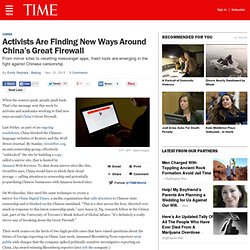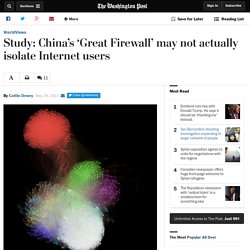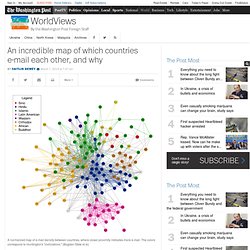

Microsoft Word - 445A5CBF-7082-08235C.doc - Tal.pdf. CS 329E - Vallath Nandakumar - Homepage. China's Great Firewall: Activists Find New Ways Around It. When the censors push, people push back.

That’s the message sent this week by activists and academics working to find new ways around China’s Great Firewall. Last Friday, as part of an ongoing crackdown, China blocked the Chinese-language websites of Reuters and the Wall Street Journal. By Sunday, GreatFire.org, an anti-censorship group, effectively “unblocked” the site by building a copy, called a mirror site, that is hosted by Amazon Web Services.
To shut down mirror sites like this, GreatFire says, China would have to block their cloud storage — calling attention to censorship and potentially jeopardizing Chinese businesses with Amazon-hosted sites. On Wednesday, they used the same technique to create a mirror for China Digital Times, a media organization that calls attention to Chinese state censorship and is blocked on the Chinese mainland. Their work comes on the heels of two high-profile cases that have raised questions about the future of foreign reporting on China.
Study: China’s ‘Great Firewall’ may not actually isolate Internet users. The researchers' visualization of "culturally defined markets" -- the interconnected, language- and geography-based groups into which Internet users naturally separate.

The clearest markets in this diagram are English (white), Chinese (red), Japanese (green) and Russian (fuscia). (Northwestern University) Everyone from Hillary Clinton to Amnesty International has bashed China’s “Great Firewall” as an impediment to free speech and democracy. That’s what makes a new study out of Northwestern University both odd and intriguing: According to its authors, media researchers Harsh Taneja and Angela Xiao Wu, Chinese censorship actually has little impact on what people there read online, and Chinese Internet users aren’t particularly isolated, even vis-a-vis users in countries with unrestricted access. What’s more, they essentially argue, the Internet isn’t that grand, global community that connects and equalizes everyone. An incredible map of which countries e-mail each other, and why. A normalized map of e-mail density between countries, where closer proximity indicates more e-mail.

The colors correspond to Huntington's "civilizations. " (Bogdan State et al) The Internet was supposed to let us bridge continents and cultures like never before. But after analyzing more than 10 million e-mails from Yahoo! Mail, a team of computer researchers noticed an interesting phenomenon: E-mails tend to flow much more frequently between countries with certain economic and cultural similarities. Among the factors that matter are GDP, trade, language, non-Commonwealth colonial relations, and a couple of academic-sounding cultural metrics, like power-distance, individualism, masculinity and uncertainty. The findings were released in a paper titled "The Mesh of Civilizations and International Email Flows," written by researchers at Stanford, Cornell, Yahoo! Some of those anomalies could be attributed to cultural differences. CS 329E (1 unread)